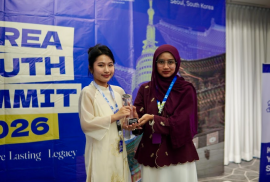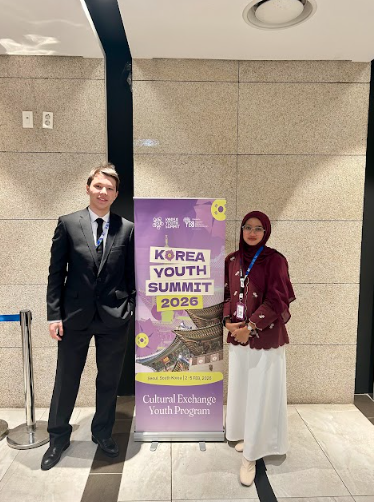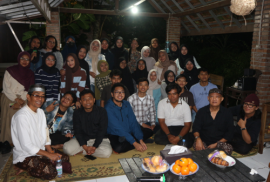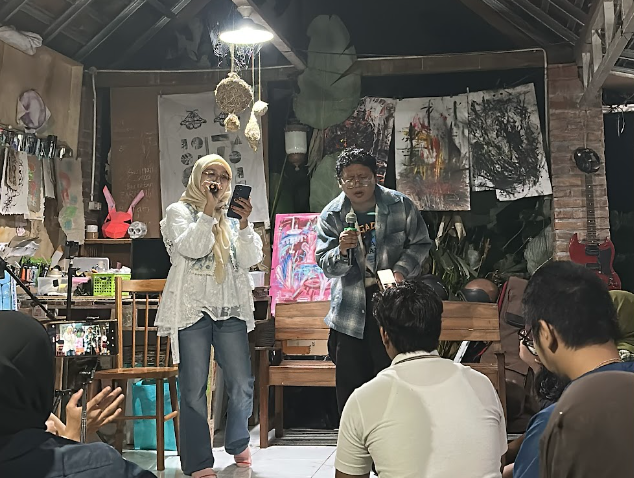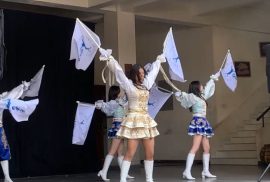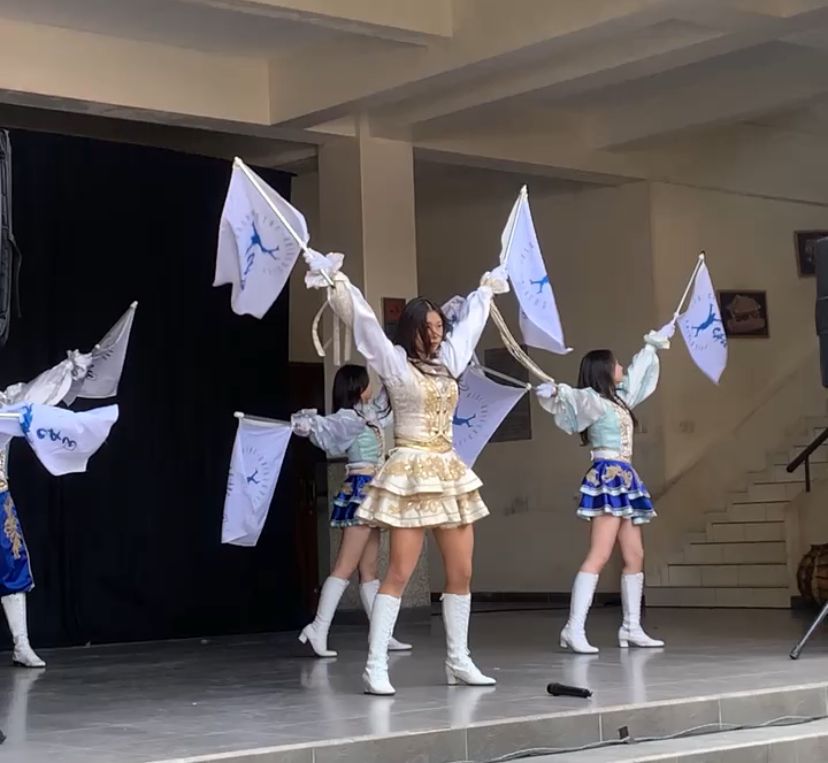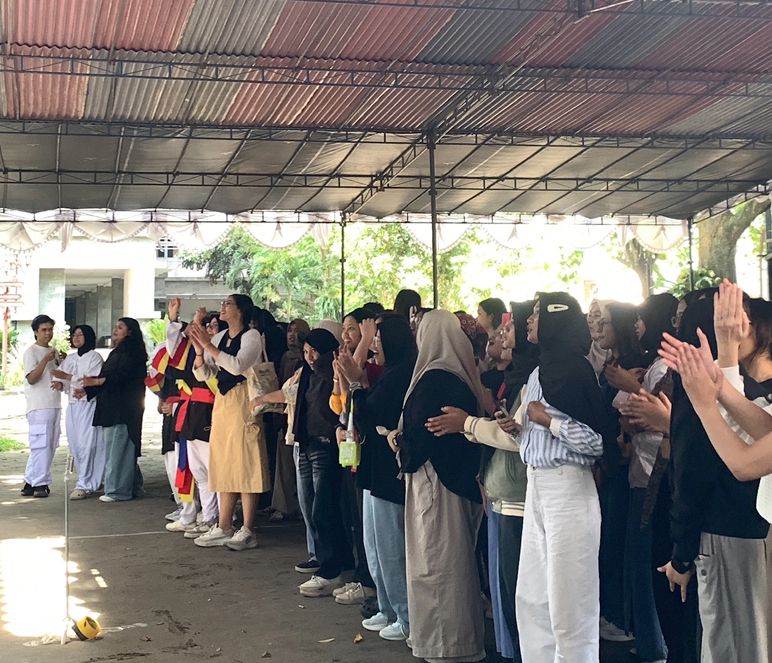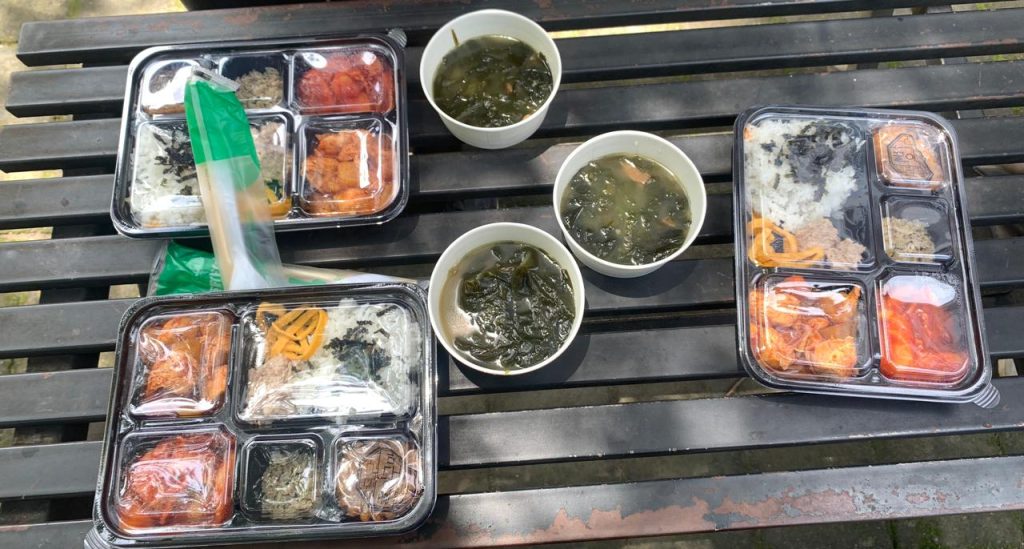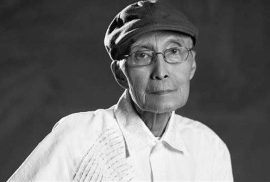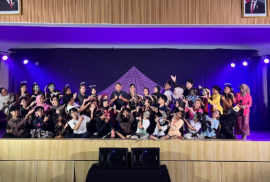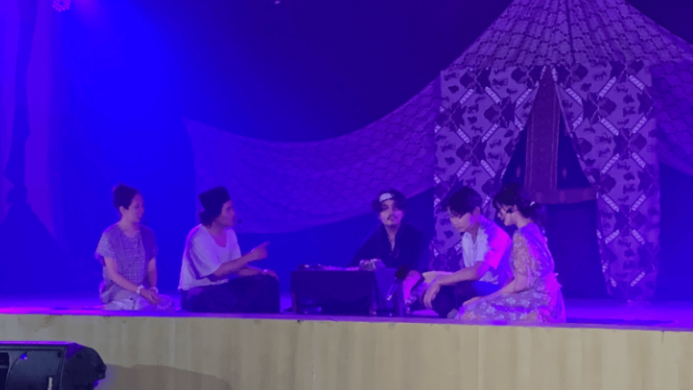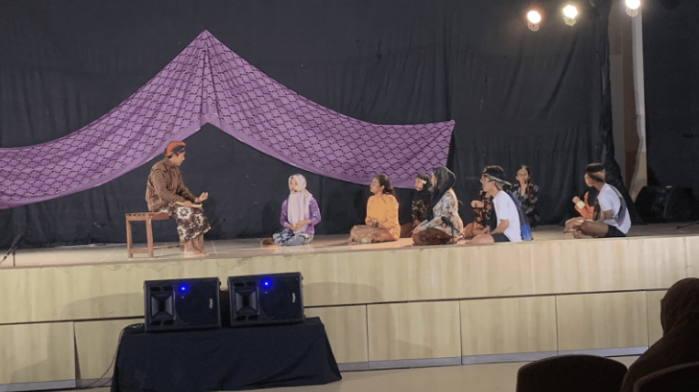It may seem uncommon for a humanities student to be involved in an international forum centered on business and innovation. Yet that is precisely what makes the story of Kharisma Qurrota Ayun compelling. A Master’s student in Literature at Universitas Gadjah Mada (UGM), Kharisma took part in the Korea Youth Summit 2026, organized by Youth Break the Boundaries from February 2–5, 2026, in South Korea.
Rather than attending as a project delegate, Kharisma contributed from behind the scenes as a member of the organizing committee. Far from being a secondary role, her position highlights an important point: global forums are not sustained by ideas alone, but also by the cultural fluency, communication skills, and coordination that make international collaboration possible. Her involvement invites a broader reflection on how the humanities, often perceived as distant from business and technology, play a vital role in knowledge diplomacy and cross-cultural engagement.
The summit’s central agenda, the International Symposium, brought together 34 young innovators from New Zealand, Vietnam, Indonesia, Morocco, Bangladesh, Mexico, and Uzbekistan. Participants presented business-driven solutions to pressing global challenges, including green economic transitions and community-based empowerment initiatives. The symposium functioned not merely as a competition of ideas, but as a shared learning space where diverse perspectives met and evolved.
In this context, Kharisma’s academic training in literary studies proved unexpectedly relevant. Literature sharpens the ability to interpret narratives, understand cultural nuances, and engage with different worldviews, skills that are indispensable in multinational settings. In global conversations, persuasive storytelling and cultural sensitivity are often as important as technical feasibility. Her background equipped her to navigate complex intercultural dynamics while supporting the event’s overall coordination.
As part of the organizing team, she helped ensure the smooth execution of the symposium, facilitated communication among international participants, and maintained the flow of the program. The role demanded meticulous planning, adaptability, and intercultural competence: qualities that reflect the emerging practice of youth-led global diplomacy.
Kharisma’s experience underscores a broader message: humanities graduates are not confined to classrooms or textual analysis. They are equally positioned to contribute to global innovation ecosystems. Her journey illustrates that literature is not only about studying texts, but about cultivating the capacity to “read” societies, bridge differences, and shape meaningful dialogue.
From Yogyakarta to South Korea, her participation signals the growing presence of Indonesian youth in international arenas. It also reminds us that transformative global initiatives rely not only on groundbreaking ideas and capital investment, but on empathy, narrative intelligence, and collaboration across cultures.
[Master of Arts in Literature, Khotibul Umam]

